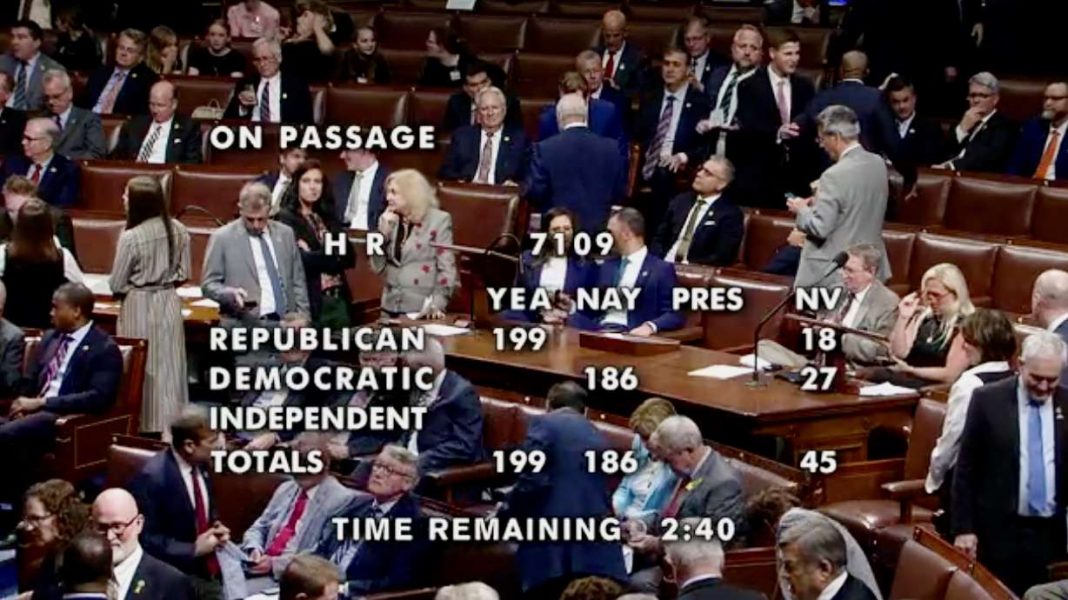WASHINGTON, D.C. — A contentious bill, proposing the addition of a citizenship query to the U.S. census and a modification in the allocation of House seats and presidential electors, received approval from the U.S. House on Wednesday.
However, this doesn’t necessarily guarantee the bill’s ultimate success.
The Equal Representation Act, also known as HR7109, was passed with a narrow margin of 206-202, strictly along party lines. The four House members from Utah — Reps. Blake Moore, John Curtis, Burgess Owens, and Celeste Maloy — sided with their Republican peers in voting in favor of the bill. However, with Democrats holding the majority in the U.S. Senate, the future of the bill remains uncertain.
Despite this, the revival of this push highlights the ongoing focus of many legislators on matters pertaining to immigration and undocumented immigrants. This type of change, as outlined in HR7109, was previously advocated for by former President Donald Trump during his tenure, albeit without success.
The proposed bill would introduce a question in the U.S. Census Bureau’s next headcount, slated for 2030, asking respondents to confirm their U.S. citizenship. Supporters of the bill argue that this question would provide a more accurate understanding of the U.S. population’s composition. Detractors, however, worry that the question could deter some immigrants from participating in the census, even though they wouldn’t be required to disclose their immigration status.
Furthermore, the bill proposes to allocate U.S. House seats and presidential electors based on the number of U.S. citizens in a specific jurisdiction, rather than the total population, including immigrants.
Advocates for this change argue that the current method of allocation results in an unfair representation, favoring states with large immigrant populations. Opponents, on the other hand, believe that the proposed change would violate the 14th Amendment to the U.S. Constitution. They further contend that immigrants, as taxpayers, deserve representation in the country.




Agree – It’s important to accurately count and represent all citizens in the census.
Disagree – including a citizenship question could discourage participation and lead to an inaccurate count.
Disagree – adding a citizenship question could deter participation from immigrant communities, leading to an incomplete and inaccurate census.